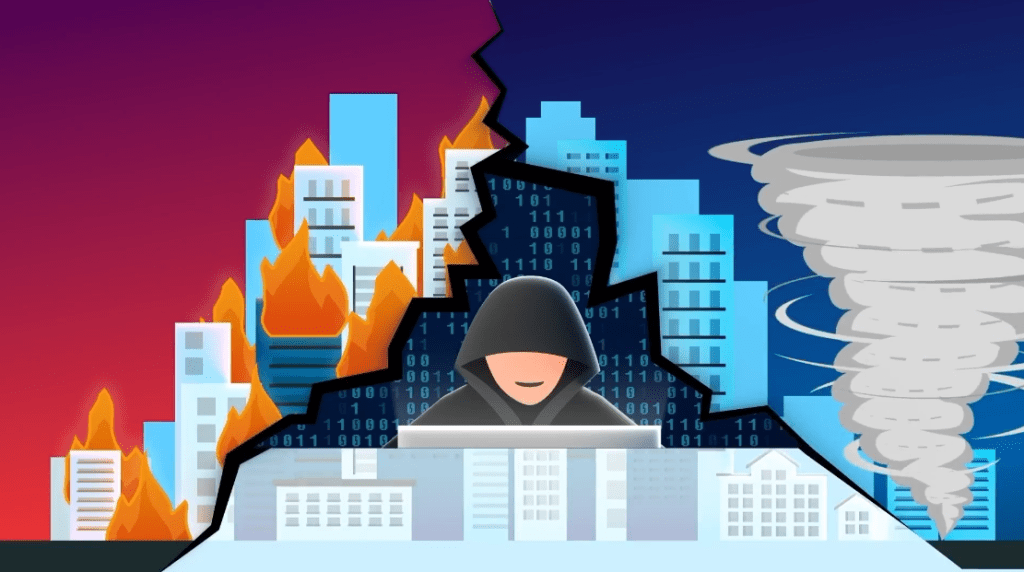In an increasingly digital world, cybersecurity is more important than ever. As businesses and individuals rely on technology for everyday operations, the risk of cyber threats, data breaches, and other malicious activities continues to rise. Understanding how to protect your data and systems is crucial for ensuring security and peace of mind. This Cybersecurity FAQs page is designed to answer the most common questions about cybersecurity, helping you navigate the complexities of protecting your digital assets.
Explore the questions and answers below to learn more about safeguarding your information and minimizing cybersecurity risks.
What is cybersecurity?
Cybersecurity protects systems, networks, and data from digital attacks, theft, damage, or unauthorized access. It involves a combination of tools, processes, and best practices to defend against cyber threats such as malware, ransomware, phishing, and other malicious activities.
Why is cybersecurity important for businesses?
Cybersecurity is critical for businesses to protect sensitive data, financial information, and intellectual property from cyber criminals. A strong cybersecurity strategy helps prevent data breaches, which can result in financial losses, legal issues, and reputational damage. Additionally, regulations and compliance standards often require businesses to implement security measures to protect customer data.
What are the most common types of cyber threats?
Some of the most common cyber threats include:
– Malware: Malicious software designed to damage or gain unauthorized access to systems.
– Ransomware: A type of malware that encrypts data and demands payment for its release.
– Phishing: Fraudulent attempts to obtain sensitive information, typically via email, by pretending to be a trustworthy source.
– Denial of Service (DoS) attacks: Overloading systems to make them unavailable to users.
– Man-in-the-Middle (MitM) attacks: Intercepting communications between two parties to steal or manipulate data.
What is a firewall, and how does it protect my business?
A firewall is a network security device or software that monitors and controls incoming and outgoing network traffic based on predetermined security rules. It acts as a barrier between your internal network and external threats by blocking unauthorized access while allowing legitimate traffic to pass through.
How can I protect my business from phishing attacks?
To protect your business from phishing attacks:
– Educate employees about recognizing phishing emails.
– Implement strong email security protocols.
– Use multi-factor authentication (MFA) for logging into accounts.
– Install email filtering tools that detect and block phishing attempts.
– Regularly update and patch software to close any security vulnerabilities
What is two-factor authentication (2FA) and why should I use it?
Two-factor authentication (2FA) adds an extra layer of security by requiring two forms of verification before granting access to an account or system. This usually involves something you know (a password) and something you have (a phone or token). 2FA significantly reduces the risk of unauthorized access, even if your password is compromised.
How does antivirus software protect my devices?
Antivirus software detects, quarantines, and removes malicious software (malware) from computers and other devices. It scans files, programs, and the system for known viruses and malware patterns and also monitors suspicious behavior to prevent new or evolving threats.
What is ransomware, and how can I protect my business from it?
Ransomware is a type of malware that encrypts your files and demands a ransom payment in exchange for the decryption key. To protect your business from ransomware:
– Regularly back up your data and store backups in a secure location.
– Keep software and security patches up to date.
– Implement email and web filters to block malicious content.
– Educate employees on how to recognize and avoid suspicious downloads and links.
What is the role of encryption in cybersecurity?
Encryption is the process of converting data into a coded format that can only be read by someone with the decryption key. It protects sensitive information by making it unreadable to unauthorized users. Encryption is commonly used to secure communications, financial transactions, and stored data, ensuring that even if data is intercepted, it remains protected.
How often should I update my software and systems for cybersecurity?
Regularly updating software and systems is crucial for cybersecurity. Many updates contain security patches that fix vulnerabilities and protect your systems from new threats. It’s recommended to apply updates as soon as they are available, and consider using automated update settings where possible to ensure timely protection.
Cybersecurity is an essential aspect of protecting your business and personal information in today’s digital age. From understanding the different types of cyber threats to implementing best practices like encryption and multi-factor authentication, having a solid cybersecurity strategy is key to minimizing risks and staying secure.
We hope this Cybersecurity FAQs page has provided valuable insights into how you can better safeguard your data and systems. If you have more questions or are looking to enhance your cybersecurity measures, don’t hesitate to consult with professionals who can help you stay one step ahead of cyber threats.
Stay vigilant, stay protected!
Please Check Western I.T. Manage IT Services
WIT Support
Managed IT Services
- Expert IT Technical Help
- Unlimited Assistance
- Starting from $60/month
WIT Protect
Managed Cybersecurity Services
- Cybersecurity Services
- Malware production
- Recovery Solutions
WIT Comm
VOIP Phone Services
- Unlimited Connectivity
- Easy Implementation
- Affordable Excellence


